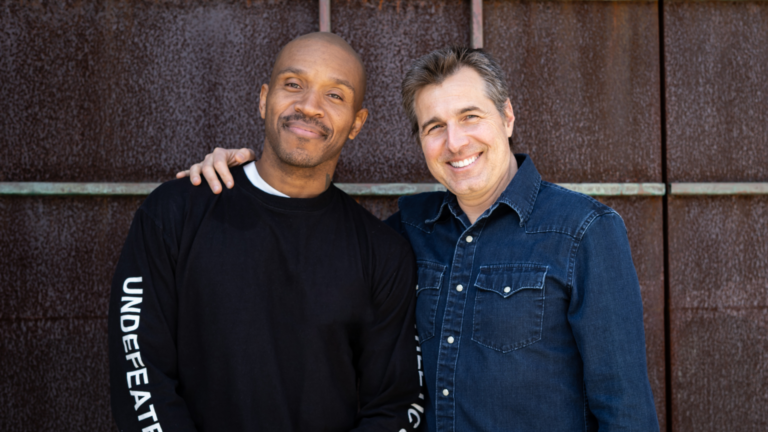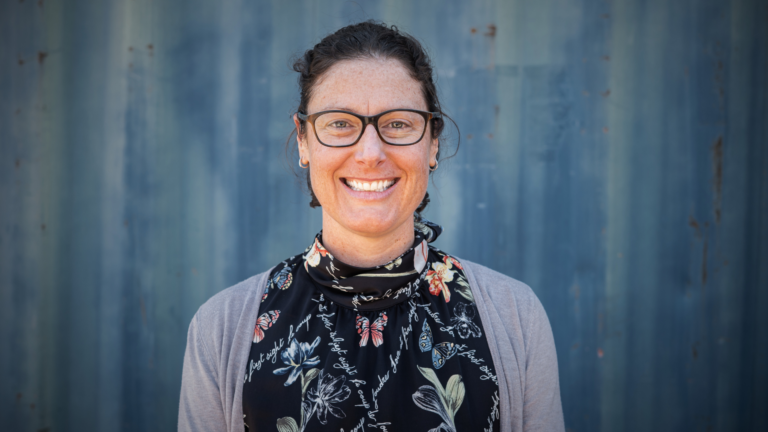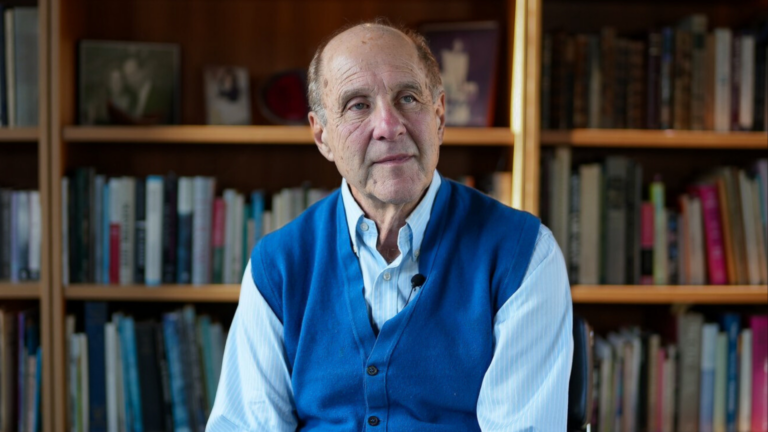Today, we’re really excited to share the 8th installment of our Ask Me Anything (AMA) series.
The ever-insightful and entertaining O’Neil Cespedes is back to co-host this month’s AMA and – per usual – we have some fun diving into your questions. On this episode, we chat about:
- What to do if you’re feeling burnt out and overworked
- Grappling with the need to prove yourself to others
- How to build culture and hire appropriately
- The difference between high performance and mastery
- Feeling like you’re “behind” in life
- And, one question to chew on… Are you a thermostat? Or a thermometer?
Lastly – as always – reply to email info@findingmastery.net with feedback or any questions you have for future AMAs.
“There’s nothing wrong with winning, but when you’re playing to win and playing not to lose, it’s substandard to playing to unlock, to be free, to explore potential of self and others to be in service of something far greater. That’s really what mastery is about.”
In This Episode:
Is your team culture identified?
Even across some of the best professional sports teams in the world, culture is not clearly identified. It might be words on walls, they might have done the exercise of having clarified their values or a sentence or two or a paragraph about what their culture is, even maybe many pages. But it’s not really clear. It’s an intellectual exercise that they’ve done to get some words. And then it hasn’t come alive yet. So the first thing is I would slightly tilt my head to say, “Is the culture that you’re looking for clearly identified?”
How do you respond to pressure?
One of the things that we’ll do in this NFL interview process is I’ll ask them, “What type of competitor are you?” And everybody wants to puff up, “I’m a dog competitor. I’m a gritty, grindy… I’ll do whatever it takes, you know. I leave nothing on the field. Like, I really leave it on the…” I leave it all on the field type of thing. Okay. A few minutes later, as we’re starting to turn up the heat and I’m asking questions at a fast pace just to see how they’re handling that speed, because I know what’s about to come, is I pause. Directly square up with them and say, “I want to see how your mind works under pressure. You good for that?” And I just watch. And I’m watching everything about them. I’m watching their pupils, I’m watching the flushness of their skin, I’m watching the micro expressions, I’m watching their body posture. What do they do in that moment that I ask them if they want to test their mind under pressure? And it’s that moment that reveals so much information. Then they have a response that is obvious to everybody and that response is “Yeah” or it is “What do you mean?”
Attributes, not skills
You really want to create an experience for people to reveal their true self, their attributes. Because we can coach up for skill. We can take the raw clay if it’s a good cultural fit and we can teach skills. I’d much rather teach skills than something that is harder to develop, which is a personality/characteristic or attribute of a person.
Cultural “fit”
At the Seattle Seahawks, we were looking for cultural fit, and you have to have physical talent. There’s nobody on the Seattle Seahawks that doesn’t have both. When you get physical talent and you get all those core attributes lined up, the culture comes alive. It’s amazing. That’s what’s fun about pro sport. That’s what’s fun about big business. That’s what’s fun about any business, is that you get to create the team that you want to have represent the culture, to represent the mission. If you’re in a position to hire, it’s really exciting. And if you are being hired, then what I say to folks that when I’m going out to be part of a club or a business or whatever, I want to really understand what they’re about, because I’m about to give everything I have to that mission, to this culture. And if the culture is not strong, I’m not into it. Either way, whether you’re hiring or being hired, it’s incredibly important to know what the culture’s about.
Attention and focus
I don’t see attention as fuel. I see attention more as a spotlight. Let’s talk about fuel in a minute, but the spotlight is like where do I place my gaze? Where do I place my light? And my light can be something on something outside of me or inside of me. Attention at any given point in time can be forced, or I’m sorry, can be focused outside. I’m focusing on you right now. And it can be focused on the broad world or something very narrow. Right now I’m looking at your eyes and so it’s external focus, external attention, narrowly driven. Let’s just take that for a minute because what I need to be able to do is hold that focus and then shift to maybe a big picture, and then come inside and think about something, and then come back outside and focus back on you. There’s this interplay that happens on attention. Spotlight is where do I put my attention? Where do I put my spotlight? Is it external or internal? When I hear that attention is fuel, I don’t quite understand it, because fuel for me feels like energy.
Working for the weekend?
There’s this phrase, I’m working for the weekend. And I understand it, and in one level breaks my heart to think about people spending their life in service of something that they don’t value. They’re working in a company or organization that is not meaningful to them, but they’re doing it just to have relief on Saturday and Sunday, Friday night, whatever. I wish that people could figure out how to have a deep passion in everything that they do, that zest for life, whether they are in a nine to five that they don’t love, but they’re doing it for a reason that is far greater than themselves, or that they can figure out the meaning and purpose in the nine to five for the thing. But it’s not just the relief on the weekend. It’s in service of something big that you’re passionate about.
“Load management”
If you crush a talent and you overwork and under recover, any human species, anyone, whether it’s in sport or otherwise, overwork under recover, they don’t show up right. You’re heading them right to a car crash. You’re heading them right into a disaster physically and or emotionally and mentally for that person, and so managing talent is a really important thing to do. When everyone’s on the same page, it’s far better. And that’s when we talk about culture, making sure that culture values the people’s experience more so than the product, but a fast follow. Those two need to be hand in hand, whatever the service or product that the company’s building.
What got you here, won’t get you there
What happens for many professional athletes is that the fuel that got them good isn’t necessarily the thing that’s going to allow them to afford joy and happiness, and it’s likely not going to get them to the next level. So something we talk about at the Olympic level all the time is, what got you here is likely not going to get you there. What does there look like for you? And so you think about it, it’s a radical, and I mean that word intentionally. It’s a radical commitment to let go of what got you to the world stage. That’s a very difficult thing to do because it’s worked. And I can hear athletes right now saying, “No, I eat the same food that mom made me. That’s worked. I eat that food every day. What do you mean, you want me to eat this stuff? You want to take my blood and see how my food’s doing? I’m good.” So there is some of that on the world stage. Everybody thinks that the best in the world are really pushing. There’s some that are holding back because they’re afraid to let go as well, but their talent is just so good at this level, but it doesn’t mean that they’re going to ever reach their potential because they’re still holding onto old practices that are not allowing the next unlock to take place.
Person, not performer
This unlock that we’re talking about from Anonymous is that feeling that, “I am not okay. Nothing can fill that hole that I feel because performance isn’t going to solve it anymore. Attention from other people is overrated. I don’t feel seen. I don’t know I really matter. I feel like I’m more of a commodity than a partner to somebody in life.” And so this is why relationships are so important and honest relationships with people that see the person and not the performer.
Are they “built different?”
We unfairly think that when somebody is extraordinary at something, they’re professional athlete, or they’re the president of an organization or the CEO or founder, that they’re different. They’re not different. They’re not different. They have the same stuff that you and I have. They have just been invested more deeply, maybe they had a different kind of starting place in their world, but they have the same basic needs, and hopes and dreams. And so to think that they’re different in those ways, it’s a safety mechanism so that you don’t have to touch your humanity or to go deep enough to get down underneath the surface about who you really are and who you’re working on becoming.
Mastery or high performance?
Somebody committed to mastery is equally, if not more interested in mastery of self. High performance is like a standard of output that is rewarding. That’s what a high performer is really about. Mastery is a whole different game. And it’s the game I’m far more interested in…at some level, high performance gets boring. Just getting the outcome or the output or winning it’s not fulfilling enough. And so, there’s nothing wrong with winning, but when you’re playing to win and playing not to lose, it’s substandard to playing to unlock, to be free, to explore potential of self and others to be in service of something far greater. And so that’s really what mastery is about. And people that are committed to mastery changed not only their own lives; their family legacy, they change a neighborhood, they change a community, maybe change an industry, potentially the world as well.
Are you a thermostat or a thermometer?
What a thermostat does is it reads the room and then also adjusts the temperature accordingly. A thermometer just reads. And so, that’s like when you think about a leadership approach, the thermostat is far greater. Read a room, understand what’s happening, and then also can influence it and move it in a direction that is more optimal. And so, we throw that phrase around, “Be a thermostat.”
Belonging
One of the basic needs that all humans have is to know that they matter, to be seen, to belong. And we are wired to be social creatures. We’re masquerading as if we are individual contributors, but we are networked and wired to be part of a system, to be in relationship with each other. And so when we give that gift to another person and we’re just like, “How are you,” and it’s not like a throwaway comment, but it’s like, “No, seriously, how are you? How was the day? What’d you do? What was it like for you?” And you’re really interested about their experience, man, that goes a long way.
Protecting to your inner child (O’Neil)
It feels amazing, to drop down my guard. But the issue that I have found is that the world sometimes isn’t so receiving of that. Maybe from my childhood or some young adult experiences, you get burned in some way, whether you act a certain way and it’s not reciprocated. And then you say, “Well, you know what? I’m going to create this.” For me, I created a persona to protect my inner child, so to speak. A former girlfriend said this to me. “You just created this persona to protect your inner child and whenever you feel like your inner child is being threatened, this persona activates and it comes out with its sword and shield, and it gets to chopping away and whatnot, not considering what’s going on.” And I would assume other people have that issue, too. They want to be loving, caring, hugging people, but they’re like, “Man, it’s a cold world out there, so I got to put my armor on. I just got to go out there. And you have to drop your armor first, then I’ll show you how I really am.”
Simplifying life
This is about simplifying life, is to invest deeply in your internal skills to be fully present so that you can get to the truth of something. When you string together enough of those truths or those insights, or those ah-has, then you get to wisdom. And now life is really simple because you’re working from a much richer place. So there is the straining to be able to get to that place. The false idol is the straining, the high performance treadmill, as the question says. Relentlessly being on that exhaustingly high performing treadmill for an external outcome. That is not going to fill the void, it’s not going to fill the gap. And so yeah, it’s the carrot that is dangling out there, that you’ll be better later with a medal or money or something else. I want all those too, but that’s not the false God. The thing that I’m more interested in is develop those capabilities so I can be fully present in a conversation with you and a conversation with anybody at whatever task I am at hand, to do that more fully.


